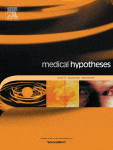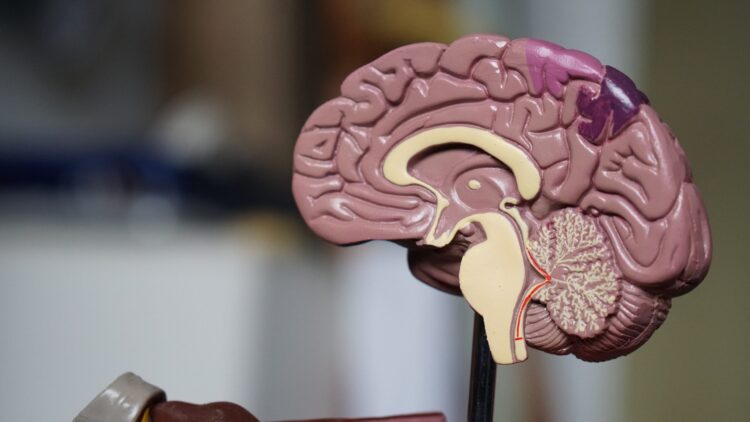I (late 20s Male) was diagnosed with adult ADHD last year and prescribed Adderall. I have currently been taking 10mg-30mg near daily for almost a year. I am prescribed 20mg 2x/day which I usually only do 10mg 2x/day or 20mg AM-10mg PM or even just 20mg AM, depending on what I have going on.
I was never diagnosed before, but I did have typical "symptoms" of ADHD as a child and teen. However, it never particularly affected my performance at school even if I didn't pay much attention. I was just smart enough to still do very well academically with little effort. This continued in college, but I did take some stimulants a small handful of times during grad school to push through some more intensive projects. I had mixed results even then, but I was also dealing with different forms of stims, rather than a consistent form and dosage. Sometimes, they would help, other times it was like I couldn't focus even more (but faster). I was always against stimulant medication, particularly for children, and I am thankful that I was not dosed up with it just for being a rambunctious boy. I say that to say that being "treated" for ADHD was never on my radar until I began a job that I felt that backed me into a corner. I still have conflicting views on it even now, but I have found that it has been useful these past several months in my current job which is a 9-5 desk position that any ADHD symptoms of lack of motivation/focus/etc. are very pronounced.
There are a lot of aspects of this that I will likely post about, and I look forward to contributing to the overall discussion on ADHD as we all search for truth. This particular post is focused on what I have noticed since about month 3 of taking Adderall, which is very uncomfortable/painful chest tightness around the top of my sternum. From what I have researched, this seems like it may be Costochondritis. It began as a feeling of tightness that was just uncomfortable--if I stretched enough, my sternum/ribs would even give a loud pop that seemed to relieve the issue for a period.
However, it has progressed to where I have ongoing pain and tightness in the area almost all the time, along with my right shoulder being in major pain as if it is radiating out. A bit more background is that I have had a chronic pain issue with my right forearm/wrist/elbow for almost 10 years now which I have struggled immensely with trying to treat and find the root cause of--so I must have some baseline susceptibility to inflammation that I would think must be implicated. This issue has waxed and waned over the years, but frankly, I still feel likely I'm practically at square one in terms of figuring out a root cause. I know plenty of things that make it worse that I do my best to restrict, i.e., seed oils, posture issues, etc., but I've never been able to get back to a real sense of normal. Now that I'm having this issue with my chest as well, I've started to become concerned that I will only get worse. Currently for the Costochondritis (if that's what it is), I've been trying to use the Backpod stretching regularly. I think it may be providing some relief, but it's hard to say.
Could Adderall be exacerbating these issues? I haven't found anything that specifically links them, but I wonder whether my already inflammatory state is being agitated more one way or another by it. I have had the gut feeling that my chronic inflammation/pain was linked to my mental symptoms (if my body is more inflamed, surely my brain is more inflamed to some degree, right?), but I still don't know what the right answers are.
I know this is a bit of a broad question, but hopefully this thread can be a place for some good discussion for possible links between ADHD causes and chronic inflammation causes. Thanks for your time
I was never diagnosed before, but I did have typical "symptoms" of ADHD as a child and teen. However, it never particularly affected my performance at school even if I didn't pay much attention. I was just smart enough to still do very well academically with little effort. This continued in college, but I did take some stimulants a small handful of times during grad school to push through some more intensive projects. I had mixed results even then, but I was also dealing with different forms of stims, rather than a consistent form and dosage. Sometimes, they would help, other times it was like I couldn't focus even more (but faster). I was always against stimulant medication, particularly for children, and I am thankful that I was not dosed up with it just for being a rambunctious boy. I say that to say that being "treated" for ADHD was never on my radar until I began a job that I felt that backed me into a corner. I still have conflicting views on it even now, but I have found that it has been useful these past several months in my current job which is a 9-5 desk position that any ADHD symptoms of lack of motivation/focus/etc. are very pronounced.
There are a lot of aspects of this that I will likely post about, and I look forward to contributing to the overall discussion on ADHD as we all search for truth. This particular post is focused on what I have noticed since about month 3 of taking Adderall, which is very uncomfortable/painful chest tightness around the top of my sternum. From what I have researched, this seems like it may be Costochondritis. It began as a feeling of tightness that was just uncomfortable--if I stretched enough, my sternum/ribs would even give a loud pop that seemed to relieve the issue for a period.
However, it has progressed to where I have ongoing pain and tightness in the area almost all the time, along with my right shoulder being in major pain as if it is radiating out. A bit more background is that I have had a chronic pain issue with my right forearm/wrist/elbow for almost 10 years now which I have struggled immensely with trying to treat and find the root cause of--so I must have some baseline susceptibility to inflammation that I would think must be implicated. This issue has waxed and waned over the years, but frankly, I still feel likely I'm practically at square one in terms of figuring out a root cause. I know plenty of things that make it worse that I do my best to restrict, i.e., seed oils, posture issues, etc., but I've never been able to get back to a real sense of normal. Now that I'm having this issue with my chest as well, I've started to become concerned that I will only get worse. Currently for the Costochondritis (if that's what it is), I've been trying to use the Backpod stretching regularly. I think it may be providing some relief, but it's hard to say.
Could Adderall be exacerbating these issues? I haven't found anything that specifically links them, but I wonder whether my already inflammatory state is being agitated more one way or another by it. I have had the gut feeling that my chronic inflammation/pain was linked to my mental symptoms (if my body is more inflamed, surely my brain is more inflamed to some degree, right?), but I still don't know what the right answers are.
I know this is a bit of a broad question, but hopefully this thread can be a place for some good discussion for possible links between ADHD causes and chronic inflammation causes. Thanks for your time











